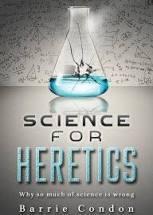 Physicist Barrie Condon has written Science for Heretics: Why so much of science is wrong. Basically arguing that science cannot really understand the world, and maybe shouldn’t even try. The book baffles me.
Physicist Barrie Condon has written Science for Heretics: Why so much of science is wrong. Basically arguing that science cannot really understand the world, and maybe shouldn’t even try. The book baffles me.
It’s full of sloppy mistakes (many misspelled names). It’s addressed to laypeople and does not read like a serious science book. Some seems downright crackpot. Yet, for all that, the author shows remarkably deep knowledge, understanding, and even insight into the scientific concepts addressed, often explaining them quite lucidly in plain English. Some of his critiques of science are well worth absorbing. And, rather than the subtitle’s “science is wrong,” the book is really more a tour through all the questions it hasn’t yet totally answered.
A good example is the brain. We actually know a lot about its workings. Yet how they result in consciousness is a much harder problem.

But identicality is a red herring. It’s perfectly valid to say I have two books, even if they’re very different, because “books” is acategory. One book plus one book equals two books.
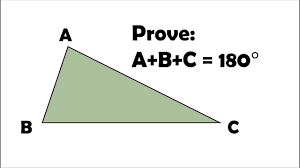
However, these are all concepts. That you can’t actually draw a perfect triangle doesn’t void the concept. This raises the age-old question (which Condon nibbles at) of whether mathematics is something “out there” as part of the fabric of reality, or just something we cooked up in our minds. My answer: we couldn’t very well have invented a mathematics with 179 degree triangles. The 180 degrees (on flat surfaces!) is an aspect of reality — which we’ve discovered.
A key theme of the book is that reality is complex and messy, so the neat predictions of scientific theory often fail. A simplified high school picture may indeed be too simple or even wrong (like visualizing an atom resembling the solar system). But this doesn’t negate our efforts to understand reality, or the value of what we do understand.
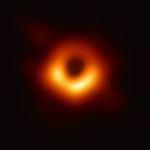
Condon talks about chaos theory, and how it messes with making accurate predictions about the behavior of any system. Weather is a prime example.

After reading partway, I was asking myself, what’s Condon really getting at? He’s a very knowledgeable scientist. But if science is as futile as he seems to argue — then what? I suspected Condon might have gone religious, so I flipped to the last chapter, expecting to find a deity or some other sort of mysticism. But no. Condon has no truck with such stuff either.
He does conclude by saying “we need to profoundly re-assess how we look at the universe,” and “who knows what profound insights may be revealed when we remove [science’s] blinkers.” But Condon himself offers no such insights. Instead (on page 55) he says simply that “we are incapable of comprehending the universe” and “there are no fundamental laws underlying the universe to begin with. The universe just is the way it is.” (My emphasis)
No laws? Newton’s inverse square law of gravitation is a pretty good descriptor of how celestial bodies actually behave. A Condon might say it doesn’t exactly explain the orbit of Mercury, which shows how simple laws can fail to model complex reality. But Einstein’s theory was a refinement to Newton’s — and it did explain Mercury’s orbit.
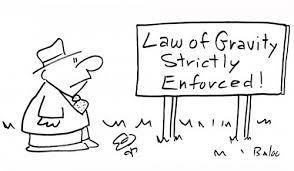
Meantime, you might wonder how, if our scientific understandings were not pretty darn good, computers could work and planes could fly. Condon responds by saying that actually, “our technology rarely depend[s] on scientific theory.” Rather, it’s just engineering. “Engineers have learnt from observation and experience,” and “[u]nburdened by theory they were . . . simply observing regularities in the behavior of the universe.”**
And how, pray tell, do “regularities in the behavior of the universe” differ from laws? In fact, a confusion runs through the book between science qua “theory” (Condon’s bete noire) and science qua experimentation revealing how nature behaves. And what does it mean to say, “the universe just is the way it is?” That explains nothing.
But it can be the very first step in a rational process of understanding it. Recognizing that it is a certain way, rather than some other way (or lawless). That there must be reasons for its being the way it is. Reasons we can figure out. Those reasons are fundamental laws. That’s science.
And, contrary to the thrust of Condon’s book, we have gained a tremendous amount of understanding. The very fact that he could write it — after all, chock full of science— and pose all the kinds of questions he does — testifies to that understanding. Quantum mechanics, for example, which Condon has a field day poking fun at, does pose huge puzzles, and some of our theories may indeed need refinement. Yet quantum mechanics has opened for us a window into reality, at a very deep level, that Aristotle or Eratosthenes could not even have imagined.
Condon strangely never mentions Thomas Kuhn, whose seminal The Structure of Scientific Revolutions characterized scientific theories as paradigms, a new one competing against an old one, and until one prevails there’s no scientific way to choose. You might thus see no reason to believe anything science says, because it can change. But modern science doesn’t typically lurch from one theory to a radically opposing one. Kuhn’s work was triggered by realizing Aristotle’s physics was not a step toward modern theories but totally wrong. However, Aristotle wasn’t a scientist at all, did no experimentation; he was an armchair thinker. Science is in fact a process of honing in ever closer to the truth through interrogating reality.
Nor does Condon discuss Karl Popper’s idea of science progressing by “falsification.” Certitude about truth may be elusive, but we can discover what’s not true. A thousand white swans don’t prove all swans are white, but one black swan disproves it.

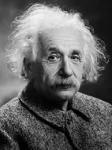
Unfortunately, such people will leap upon Condon’s book as confirmation for their seeing science (but not the Bible) as fallible.*** Thinking that because science doesn’t know everything, they’re free to disregard it altogether, substituting nonsense nobody could ever possibly know.
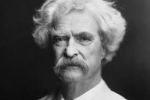
*But later he spends several pages on the supposed danger of the Large Hadron Collider creating black holes (that Condon doesn’t believe in) and destroying the world. Which obviously didn’t happen.
**But Condon says (misplaced) reliance on theory is increasingly superseding engineering know-how, with bad results, citing disasters like the Challenger with its “O” rings. Condon’s premise strikes me as nonsense; and out of literally zillions of undertakings, zero disasters would be miraculous.
***While Condon rejects “intelligent design,” he speculates that Darwinian natural selection isn’t the whole story — without having any idea what the rest might be.
Advertisements